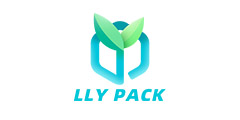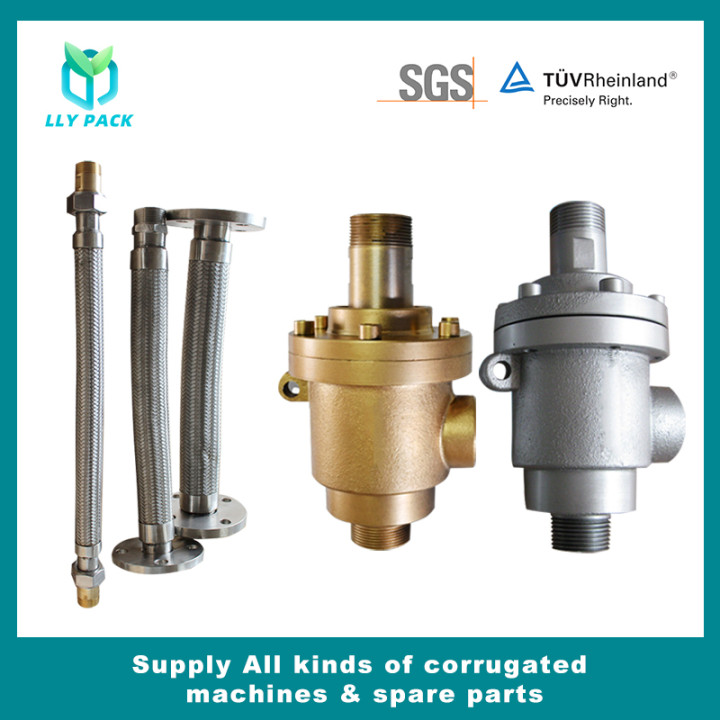Maintaining the moisture content of corrugated board is the best way to control the board burst. The moisture content of the corrugated board from the tile line is controlled between 12% and 18%, and the moisture content during the printing should be maintained at 10% to 13%. Due to some objective conditions, people often think that controlling moisture is not easy. Here, we will introduce some more effective methods:
First of all, the traditional method of adjusting the processing technology of corrugated cardboard has a certain effect. Usually we can adopt the following methods to control: when the pulp is adjusted, the formula of the paste is adjusted to increase the moisture content in the paste. Appropriately increase the amount of paste. It has been proved by practice that increasing the amount of paste can effectively increase the moisture content of the paperboard, and increasing the amount of paste can also improve the adhesion effect to some extent. Appropriately reduce the contact area between the base paper and the preheating wheel to avoid excessive evaporation of water on the preheating cylinder. Reduce the residence time of the cardboard on the hot plate. By maintaining a higher speed, reducing the length of the hot plate, and reducing the hot plate vapor pressure, etc., the excessive moisture evaporation of the cardboard when passing the hot plate is avoided. When using this method, care must be taken to ensure that the cardboard does not come off.
Secondly, the lack of understanding of the law of moisture change from the time the tile is out of the tile to the printing on the machine is an important reason for the explosion. When the cardboard comes out of the tile line, although its overall moisture content is relatively high, the moisture content of each layer of paper is extremely unbalanced. Tests showed that during the dry season, when the cardboard was just produced from the cardboard line, the moisture content of the facial tissue was about 8%, and some were even lower than 6%. After the cardboard was stacked for 4 hours, the moisture of the layers of paper tended to be balanced. Water increased to more than 9%. Therefore, if the paperboard is printed on the machine immediately after it comes out of the tile line, since the water content of the paper is very low at this time, the pressure line position may easily burst. Therefore, after the cardboard is produced, it should be piled up for enough time until the moisture of the layers of paper reaches equilibrium and then printed on the machine. Paper board surface, the paper inside the water is printed on the pressure line is low, the pressure line will produce micro-cracking, and even if the surface, the paper increased moisture, popping problems can not be avoided.
If the customer's delivery time is too short, there is not enough time for the paperboard to balance the moisture. It is the most direct and effective way to give wet water to the board surface. When wet, it is best to avoid spilling over the printed area. Otherwise, it will cause adverse effects on printing. If the conditions permit, we can use the waste field version to make a wet version. We first use a printing station to wet the press lines and then print. In this way, fast wet water can be applied to the press line without affecting the print quality.
When it is impossible to improve the board burst by controlling the moisture content, the use of better kraft liner board with better folding resistance can also effectively reduce the bursting degree of the carton. At present, there is no reliable test to completely avoid the problem of bursting. Paperboard with test data indicating that both the surface paper and the liner paper are 100% raw wood pulp, and the moisture content of which is as low as 6%, will also exhibit popping. In general, the bending resistance of the base paper can be reflected from the two physical properties of the longitudinal tearing degree and the bursting resistance of the paper to a certain degree. The original paper with a high longitudinal tearing degree and a high bursting resistance has a corresponding folding resistance. The higher ones.
In the allocation of paper, unless there are special requirements, we should try to reduce the difference in surface weight. For example, we should try to avoid the production of K=B, K=C cardboard, because it will easily lead to B or C paper burst. In fact, most corrugated board manufacturers do not produce corrugated cardboard with K=B and K=C. This shows that this principle has long been recognized and followed by counterparts. If this configuration has to be used for objective reasons, then the best way is to use a long fiber kraft linerboard for the lower grammage.
For the different strengths of corrugated paperboard, we should treat the matching of paper and paper in the opposite. The higher the cardboard side pressure strength or the whole box compressive strength requirements of the carton, surface, the paper should also use a higher degree of folding paper matching.
For A, BA, BCA and other corrugated boards with A-shaped combination, selective use of base paper with good folding endurance and A corrugated sheets can also effectively prevent cardboard popping.
When the paperboard is slotted and pressed, attention should be paid to adjusting the position of the concave and convex roller on the pressure line, and the slight deviations in the process of the slotted pressure line must be adjusted in time. Moderate pressure reduction can also improve the burst, but this approach may cause poor carton formation.
EnglishEspañolPortuguêsDeutschहिंदी日本語ខ្មែរNederlandsالعربية한국어मराठीMalagasyItalianoPolskiSvenskaελληνικάPусскийภาษาไทยTürkShqipMagyarViệtSamoaМонголMaltiIndonesia FrançaisMelayuҚазақшаYorùbáবাঙালিעִברִיתGàidhligSomaliEesti keelKreyòl Ayisyennorskčeštinaفارسیతెలుగుမြန်မာBosanskiMaoriქართულიRomânăбеларускіУкраїнськаతమిళGaeilgeSuomalainenپښتوລາວհայերենSlovenščinaFilipinoO'zbekÍslenskaייִדישLatviešuGalegoFryskनेपालीKurdîCatalàбългарскиHawaiianHrvatskiਪੰਜਾਬੀWong JawaKiswahililëtzebuergeschisiXhosaEuskalSundaZuluગુજરાતીТоҷикӣ
- Huis
- Over ons
-
Product List
- Golflijn
- Gegolfde machine >
-
Golde machine -reserveonderdelen >
- Roterend gewricht
- Kam voor Slitter Scorer
- Remblokken
- Diafragmpomp voor lijm
- Afvalpapierstripper
- Uitbreiding
- Flexibele metalen slang
- Slijpschijf
- Tape voor splicer
- Gegolfde roller
- Slijpmes
- Overheadbrug tractieriem
- Zonnescherm
- Transportband
- NC snijmes
- Stoomval
- Pneumatische cilinders
- Pneumatische rem
- Luchtboelveer
- Waterring vacuümpomp
- Golfmachines smeermiddel
- Rubberen spacer
- Titanium-vergulde spacer
- Flexo printer slotter
- Flexo -printermachine >
-
Printer -reserveonderdelen >
- koperen plaat
- Afdrukplaatrek
- ARO-pomp
- Stalen en koperen borstel
- Inktfilter
- Dokterbladen
- ANVIL COVER
- Slotting mes
- Vezelband
- Hangend frame
- Huisdier pre-strip met film
- R en bak printing kussen
- Voedingswiel
- Eénrichtingskleurig
- Rotary Die Board
- Enkele diafragmapomp
- Inktkanaal eindblok
- Rubberen diafragma
- Duckbill -klep
- Magnetische koppelingsrem
- Hangende groove strip
- Verpakkingsmachine >
- Kartonmachine >
- Kartonnen machineonderdelen >
- Dubbele faceriemen
- Stiksels lijmensysteem >
- Kartonnen snijmes >
- Wolfraamstalen mes >
- Slijpschijf
- Afvalstripper
- Verpakkingsmachine mes >
- Pre-press apparatuur >
-
Industrieel snijmes >
- Tegel Circular Saw Blade
- Metaal snijden zaagblad
- Houtsnijzaagblad
- Voedsel snijden zaagmes
- Vezelsnijmes
- Chipperblad
- Buigvorm
- Blade voor groentesnijdende machine
- Stalen dun mes
- Tsukatani Die snijdende mes
- Printer Die Cut Blade
- Masker machineblader
- Slitter Rewinder Blade
- TMR -mes
- Tabakscirculaire mes
- Roll Shear Blade
- Gekarteld mes voor verpakkingsmachine
- Papier snijdende band mes
- Dokter mes
- Ronde mes
- Three Holes Blade
- Keramisch mes
- Bandmesmes voor stof
- Bandmesmes voor sponsschuim
- Bandmesmes voor splijten machine
- Bandmesmes voor papier
- Meshouder
- Industrieel snijmes
- Freeskutter
- Hoekmolen
- Shredderblad
- V Grooving mes
- Elektrische schaar
- CNC Machine Blade & Tools
- Voedselverwerking mes
- Nieuws
- video
- Contactgegevens
- Klik Hier om onderzoek te sturen










